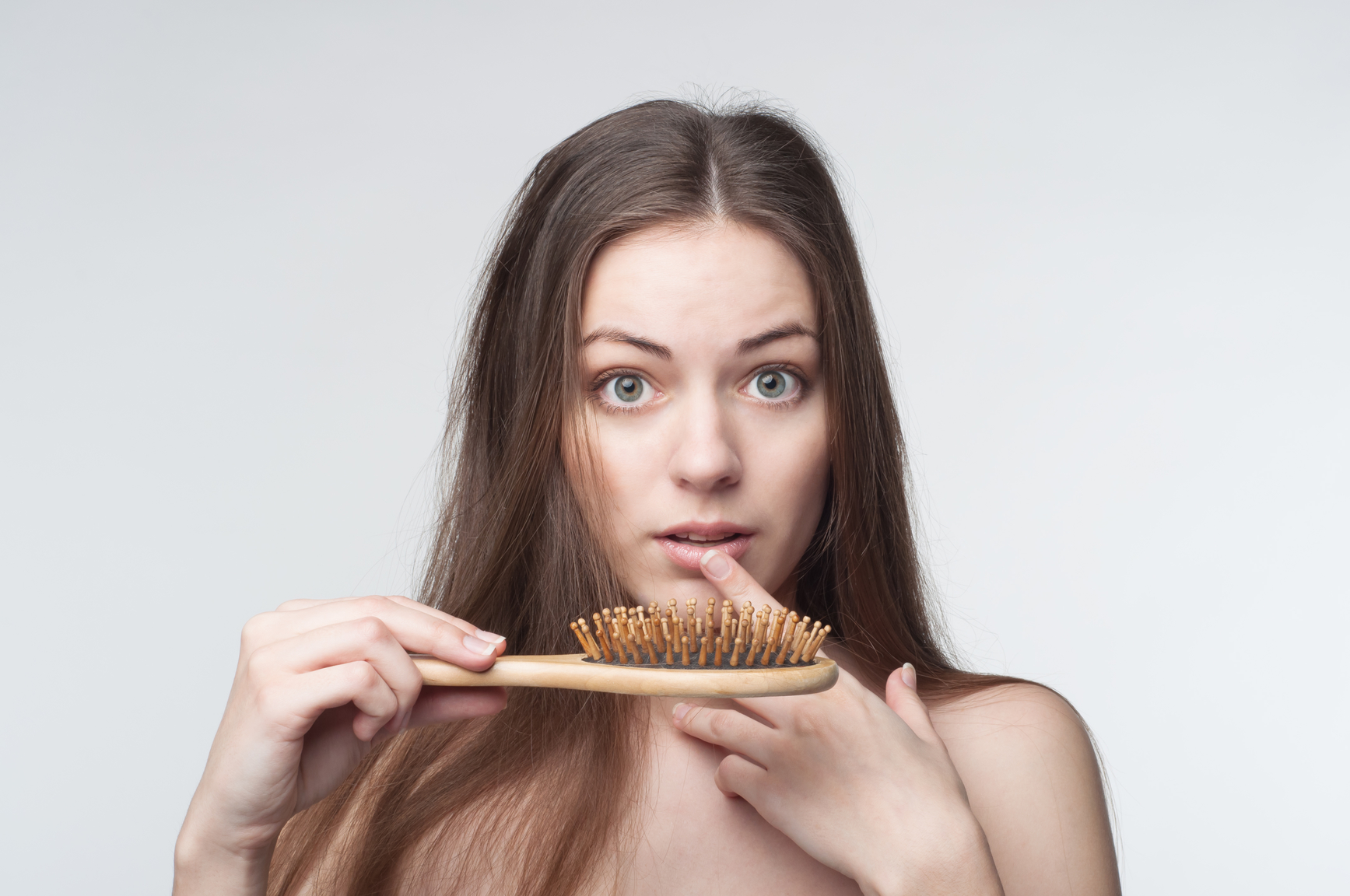Good hair days and bad hair days. It’s the way many of us judge not only the way we look, but the way we feel and the way we present ourselves to the world. And if you’re experiencing it, thinning hair doesn’t make things any better.
When men lose their hair, it’s considered a natural state of being. But when women lose theirs, it’s a whole different story. Oddly enough, though, it can be just as natural. Simply a matter of genetics combined with the aging process, or an hormonal imbalance in your system. You may also have brought it on yourself by over-stressing your hair.
Heredity
According to the American Academy of Dermatology, hair loss caused by genetic factors is the most common. You can have inherited the gene either from your mother’s or father’s side of the family, with a double whammy if both of your parents experienced hair loss.
Slowing the hair loss may be helped with a non-prescription drug called Rogaine (minoxidil) that enhances the size of the follicle, producing a thicker strand of hair. About 50 percent of women see improvement with Rogaine, but treatment requires twice daily application to the scalp, and results last only as long as you use the product regularly. Alternatively a prp injection for hair loss is very effective.
If you don’t want to go through all that, or while you’re waiting the three to six months for Rogaine to kick in, try hair extensions. Even if you don’t want extra length, extensions add volume and body to boost the look of thinning hair. Tape-in hair extensions come in every texture from straight to kinky curly to match your own hair, and with proper care can last for six to eight weeks. You can have them applied at a salon, but if you’re adept, you can even apply them yourself.
Stressing Your Hair
Chemicals and heat weaken hair and can cause it to break and fall out. The more you color your hair, or use hot dryers and irons for curling or straightening, the more you stress it. Pulling it back tightly every day can also weaken hair at the roots. The fix is easy: give your hair a reprieve and treat it more gently.
Scalp Conditions
If your scalp isn’t healthy, your hair will have trouble growing. Skin conditions that can lead to hair loss include seborrheic dermatitis (you know it as dandruff), psoriasis, and fungal infections. There are special shampoos that treat dandruff, but if you suspect one of the other conditions, see your dermatologist for an analysis and medication to clear it up.
Hypothyroidism
The thyroid gland regulates metabolism and the growth of your hair, skin and nails, among other things. If your thyroid is sluggish, it may be causing the problem. Some of the other symptoms that point to hypothyroidism include unexplained weight gain, fatigue, and depression. The condition can be treated successfully by your doctor with thyroid hormone medication.
Telogen Effluvium
This is a condition that can occur after pregnancy, major surgery, fast and dramatic weight loss, or extreme levels of stress. Side effects of certain medications can also cause it. If one of these reasons is the cause, you’d notice hair loss beginning from six weeks to up to three months after the event. With time and stress relief, your hair should start growing in again.
Iron Deficiency Anemia
Symptoms of iron deficiency anemia include weakness and extreme fatigue as well as cold hands and feet, headaches, and difficulty concentrating. It can be caused by heavy periods or not eating enough foods rich in iron, which affects the amount of red blood cells in your body to transport oxygen and give you energy.
See your doctor to be sure, but in the meantime, increase your intake of foods that contain iron (like beef, pork, fish, leafy greens, fortified cereals, and beans), and either take in more fruits rich in vitamin C or take a daily supplement.
Polycystic Ovarian Syndrome
This is an hormonal imbalance in which, among other things, your body produces too much testosterone, and can cause hair loss on your head but increased hair growth on your face or elsewhere on your body. It can also be the cause of ovarian cysts, irregular periods, and even infertility. Your doctor may treat this condition with birth control pills or other drugs that block production of the male hormone.
Alopecia
Alopecia is an autoimmune disease that attacks hair follicles. A definitive answer to what leads to the condition is still unknown, but it may be caused by illness or stress. Alopecia totalis causes complete hair loss on the head, while alopecia universalis causes hair loss all over the body. Alopecia areata, the third form of the condition, typically causes round patches of baldness on the head or on legs or eyebrows, and is typically treated with steroid medications. As with many other conditions, relieving stress can be an important factor in alleviating symptoms. A popular treatment for men suffering with alopecia is propecia. You can buy propecia from over-the-counter and online pharmacies.





